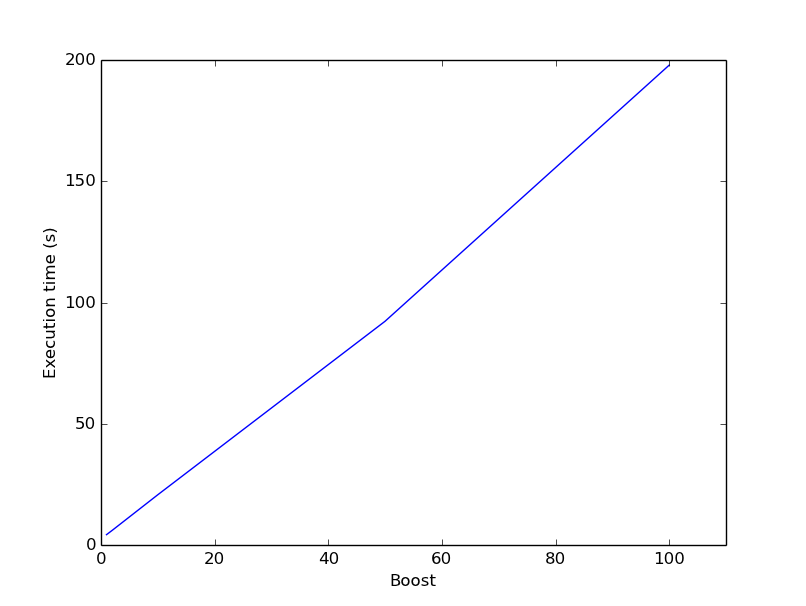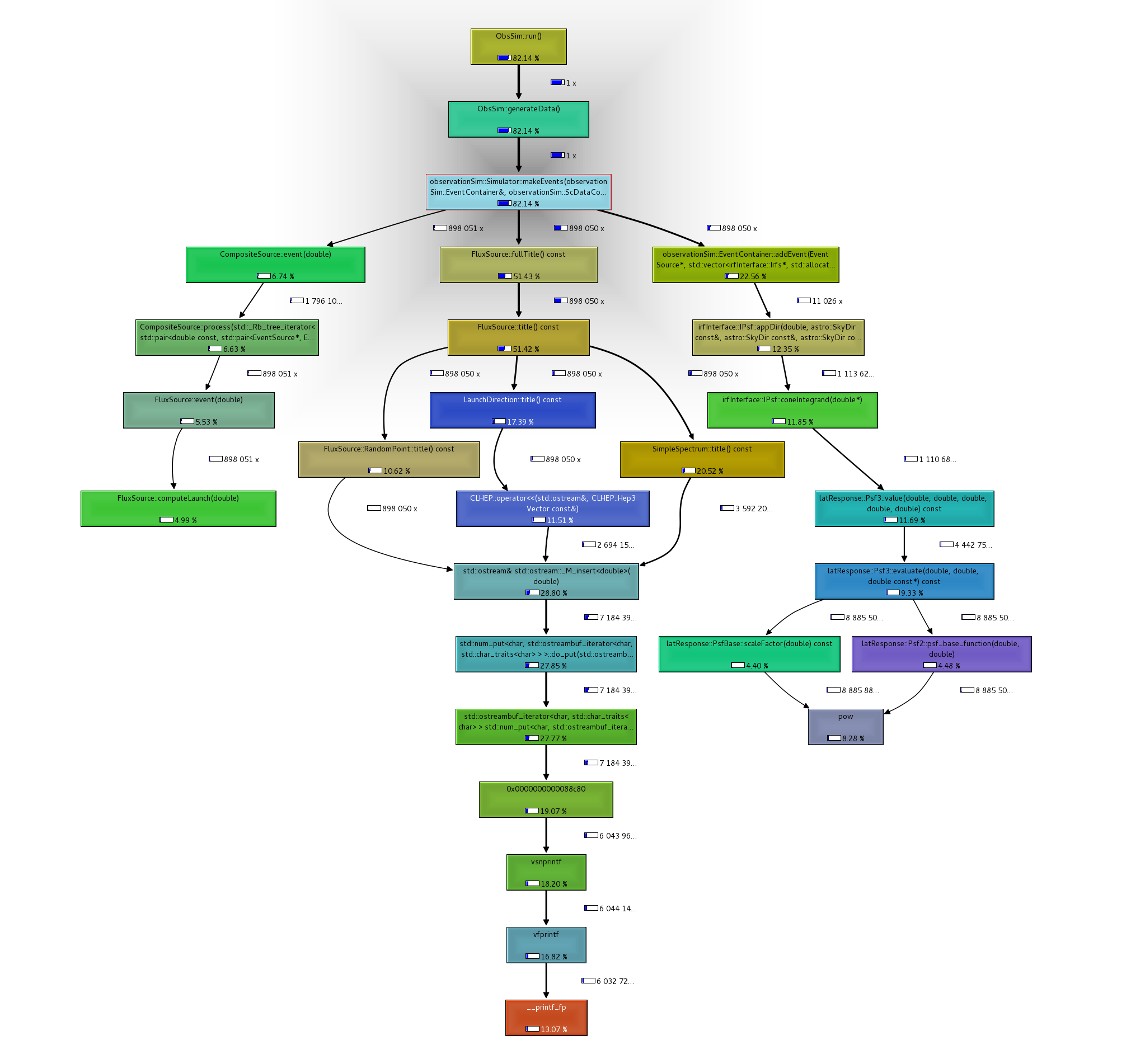Profiling one of my programs, I found some surprising things in gtobssim.
I am using ScienceTools-LATEST-1-4066, build x86_64-64bit-gcc47-Optimized.
Execution time
I am simulating a single point source, with this xml file:
<source_library title="Library">
<source flux="0.667283950775" name="bn131231198">
<spectrum escale="MeV">
<particle name="gamma">
<power_law emax="200000.0" emin="15.0" gamma="2.0" />
</particle>
<celestial_dir dec="-2.42" ra="10.11" />
</spectrum>
</source>
</source_library>
This is the command line I am using:
gtobssim infile=sim_model.xml srclist=source_list.txt scfile=/home/giacomov/FermiData/bn131231198/gll_ft2_tr_bn131231198_v00.fit evroot=boost simtime=100000 ltfrac=1 tstart=410157919.083 nevents=no maxtime=3.155e8 use_ac=no emin=30 emax=100000 edisp=no irfs=P8_SOURCE_V4 maxrows=100000 seed=653786
These are the execution times with the flux as reported above, and then "boost" times that value:
| Boost | Execution time (s) |
|---|---|
| 1 | 4.438 |
| 2 | 6.176 |
| 10 | 20.802 |
| 50 | 92.315 |
| 100 | 197.873 |
This shows that the algorithm is essentially linearly dependent on the number of events (apart from a short initialization time):
Profiling
I used this command to profile the execution:
valgrind --tool=callgrind gtobssim infile=sim_model.xml srclist=source_list.txt scfile=/home/giacomov/FermiData/bn131231198/gll_ft2_tr_bn131231198_v00.fit evroot=boost simtime=100000 ltfrac=1 tstart=410157919.083 nevents=no maxtime=3.155e8 use_ac=no emin=30 emax=100000 edisp=no irfs=P8_SOURCE_V4 maxrows=100000 seed=653786
and then the tool kcachegrind to produce this plot:
I am puzzled by the fact that 50 % of the time is spent in the FluxSource::fullTitle() function, which afaik should only return the full name of the source. The relevant piece of code which calls fullTitle is in observationSim/src/Simulator.cxx:
void Simulator::makeEvents(EventContainer &events,
ScDataContainer &scData,
std::vector<irfInterface::Irfs *> &respPtrs,
Spacecraft *spacecraft,
bool useSimTime) {
m_useSimTime = useSimTime;
m_elapsedTime = 0.;
// Loop over event generation steps until done.
while (!done()) {
...
std::string name = m_newEvent->fullTitle();
if (name.find("TimeTick") != std::string::npos) {
if (!m_usePointingHistory) {
scData.addScData(m_newEvent, spacecraft);
}
} else {
if (events.addEvent(m_newEvent, respPtrs, spacecraft)) {
m_numEvents++;
}
}
...
} // while (!done())
}
This is essentially only checking if the name contains "TimeTick", because in that case it has to generate a new piece of simulated FT2 file. In my case I am using a real FT2 file, so the check is false. Now, just by substituting that line with:
while (!done()) {
...
//std::string name = m_newEvent->fullTitle();
std::string name = "just a source";
if (name.find("TimeTick") != std::string::npos) {
if (!m_usePointingHistory) {
scData.addScData(m_newEvent, spacecraft);
}
} else {
if (events.addEvent(m_newEvent, respPtrs, spacecraft)) {
m_numEvents++;
}
}
...
} // while (!done())
I reduce the execution time to ~1/3 of what it used to be:
| Boost | Execution time (s) | Old execution time (s) |
|---|---|---|
| 10 | 7.636 | 20.802 |
| 50 | 28.375 | 92.315 |
| 100 | 197.873 | 53.868 |

